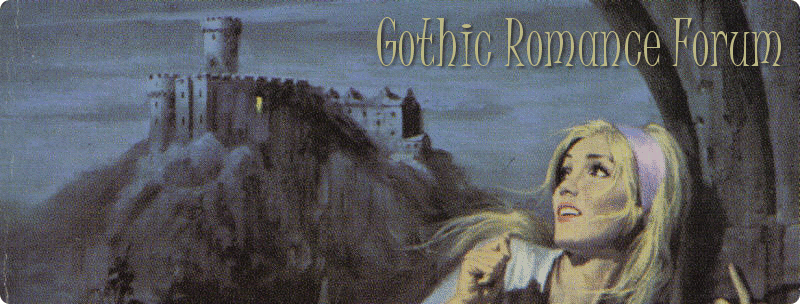12-15-2007, 06:23 PM
As the books in our book discussion illustrates, the essential points in the Gothic novel have changed over time. I think part of this has to do with the settings of the novel.
Early on, we have a moral tale of good vs. evil. Although not all of the early Gothics were like this, the very earliest did focus on that theme. These early Gothics were set in the medieval period even though they were written in the 18th century. Romances pre-date the Gothics, but these early Gothics concentrated more on suspense and mystery. The romances were a side issue, a subplot. We can all be guaranteed that the good and noble hero will win the virtuous virgin.
In Jane Eyre, we have a tale that really does focus on the romance between the hero and heroine. They are more 3-dimensional characters and the reader can sympathize with them. They are no longer the perfectly white (and rather dull) characters of the early novels. Unlike the early Gothics, where the hero discovers his noble birth rights, now we have the heroine attaining a fortune, making her a more suitable marriage prospect. The mystery/suspense in these novels is what drives a wedge in the romantic relationship. Jane Eyre was written contemporarily, but today, when authors choose to write historical Gothic romances, this is the formula they tend to follow.
When we move on to Rebecca, the settings again change. We are in the 20th century but moral values had not changed much early in that century, at least on the surface. Underneath, I believe the currents for a social/moral change was beginning and this is the impetus that drives the novel. (Had this story taken place today, it would not have been very believable.)
The modern Gothics take many forms and I feel the romance develops very quickly (too quickly sometimes). It is a reflection of the times that the hero and heroine can develop a romantic relationship even on the barest of acquaintances. Although most Gothic romances from this era still have virgins as the heroine and the "whores" as their rivals, it is not unusual to have a sexually experienced heroine.
On the whole, I'd much rather prefer the historical novels (like fallover) and the more restrained moral codes simply because I feel it adds more tension to the relationship between the hero and heroine. On the other hand, many of the modern romantic suspense stories can quicken my pulse with their thrilling adventures. I don't read many of the early Gothics. For me, they are more fitted for an academic, intellectual pursuit than pleasure-reading.
Early on, we have a moral tale of good vs. evil. Although not all of the early Gothics were like this, the very earliest did focus on that theme. These early Gothics were set in the medieval period even though they were written in the 18th century. Romances pre-date the Gothics, but these early Gothics concentrated more on suspense and mystery. The romances were a side issue, a subplot. We can all be guaranteed that the good and noble hero will win the virtuous virgin.
In Jane Eyre, we have a tale that really does focus on the romance between the hero and heroine. They are more 3-dimensional characters and the reader can sympathize with them. They are no longer the perfectly white (and rather dull) characters of the early novels. Unlike the early Gothics, where the hero discovers his noble birth rights, now we have the heroine attaining a fortune, making her a more suitable marriage prospect. The mystery/suspense in these novels is what drives a wedge in the romantic relationship. Jane Eyre was written contemporarily, but today, when authors choose to write historical Gothic romances, this is the formula they tend to follow.
When we move on to Rebecca, the settings again change. We are in the 20th century but moral values had not changed much early in that century, at least on the surface. Underneath, I believe the currents for a social/moral change was beginning and this is the impetus that drives the novel. (Had this story taken place today, it would not have been very believable.)
The modern Gothics take many forms and I feel the romance develops very quickly (too quickly sometimes). It is a reflection of the times that the hero and heroine can develop a romantic relationship even on the barest of acquaintances. Although most Gothic romances from this era still have virgins as the heroine and the "whores" as their rivals, it is not unusual to have a sexually experienced heroine.
On the whole, I'd much rather prefer the historical novels (like fallover) and the more restrained moral codes simply because I feel it adds more tension to the relationship between the hero and heroine. On the other hand, many of the modern romantic suspense stories can quicken my pulse with their thrilling adventures. I don't read many of the early Gothics. For me, they are more fitted for an academic, intellectual pursuit than pleasure-reading.




